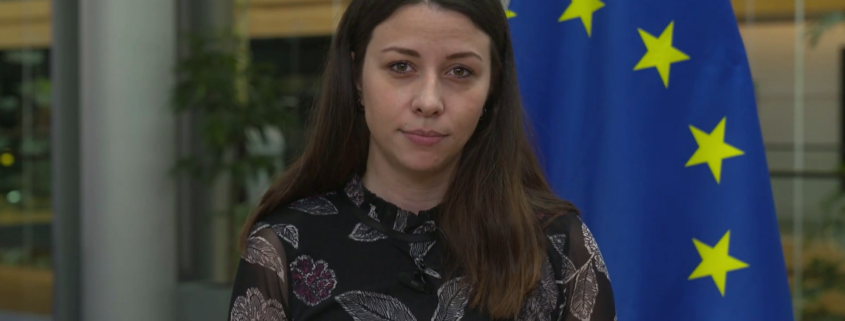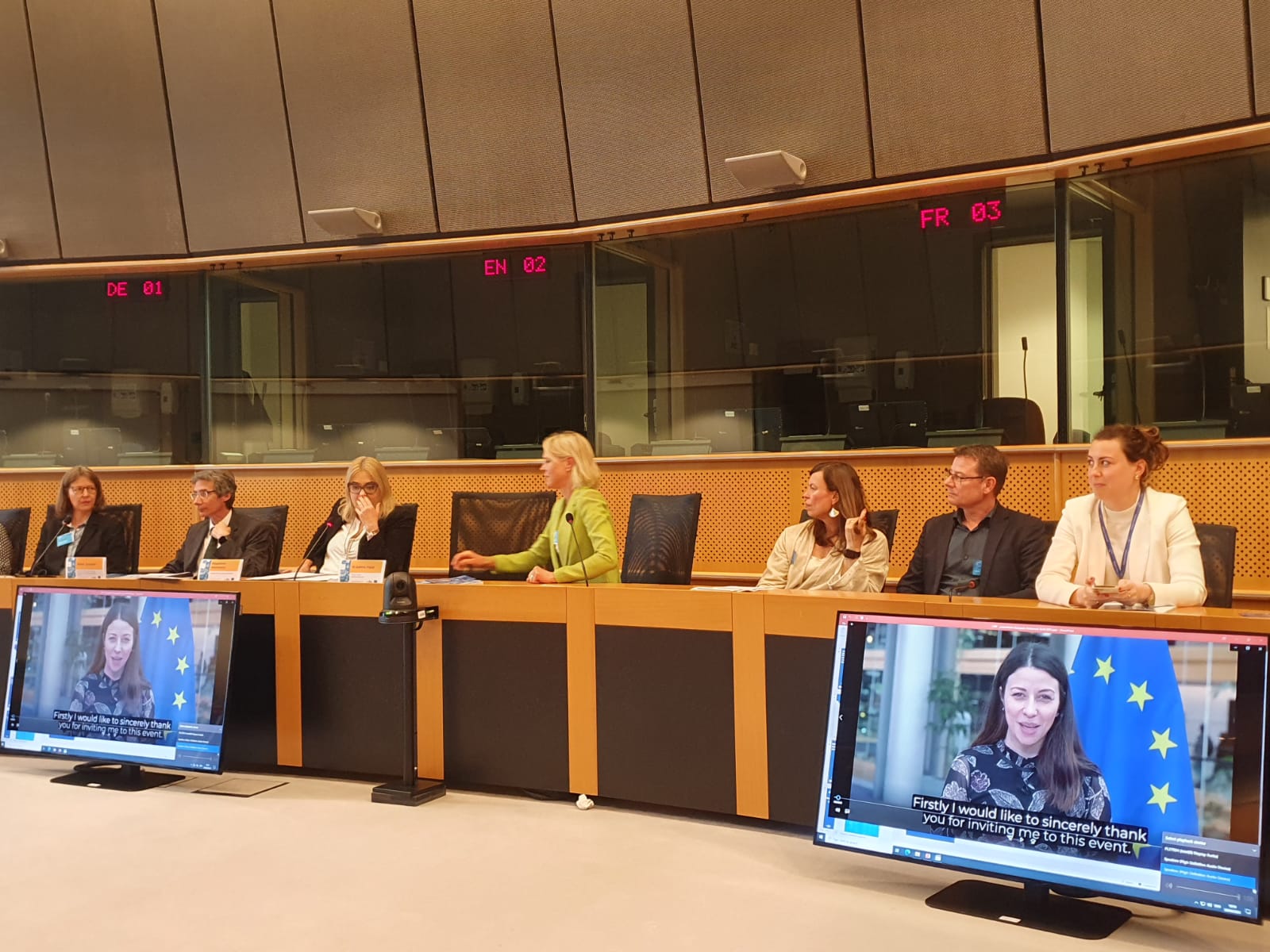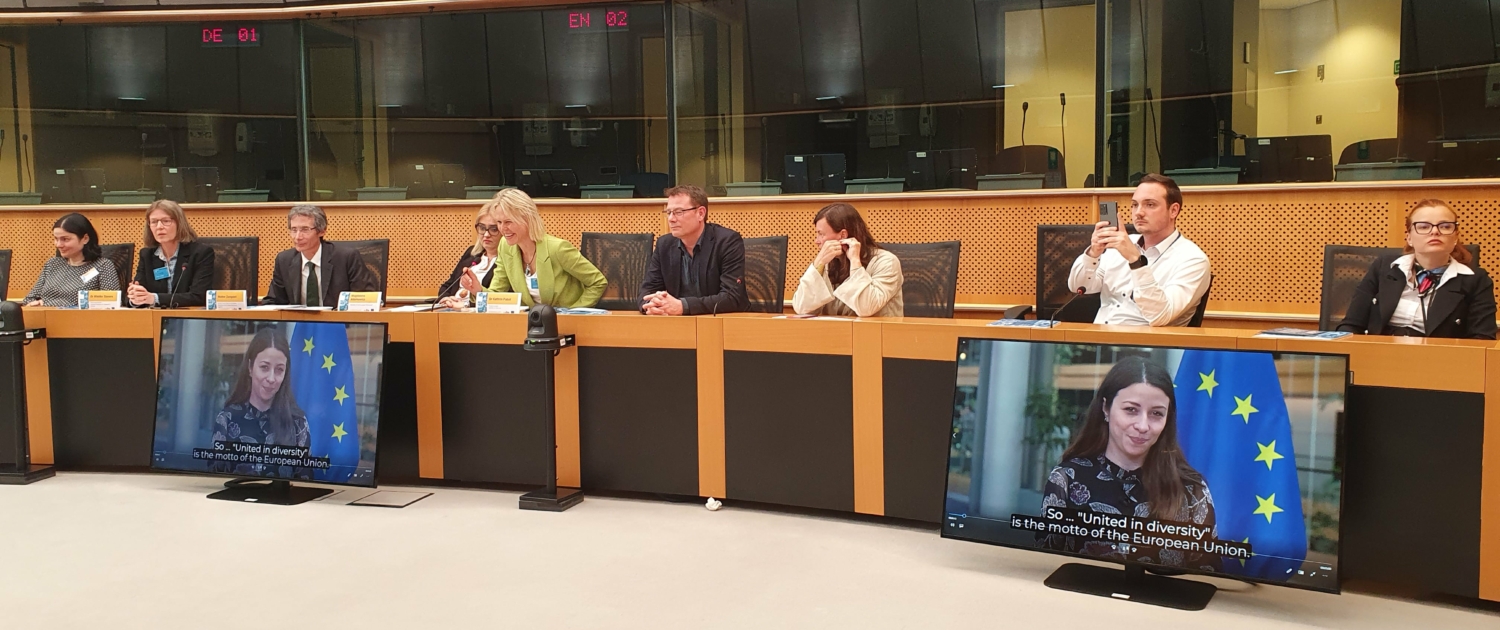“Migration, of whichever kind, is inevitably accompanied with the questioning of one’s own identity. With the search for an answer to the question: who am I, really? It is accompanied with dealing with the multilayered nature of identity from the perspective of nationality, ethnicity and other spatially based feelings of belonging,” MEP Irena Joveva told participants at the event The migratory experience: adopting a three-generational perspective. The event aimed to explore the long-term consequences of traumatic experiences, forced migration and the search for a new life and identity in a foreign land.
The MEP began her video address by saying that the European Union is rich in many different cultures, traditions and languages. This is partly due to migration and population movements. “Migration is nothing new. Nor did it come about because of the Union. Nor is it limited to the Union. /…/ Migration is and always will be.”
”As she said, she, too, questioned her own identity and inquired about it. “I am a Slovenian with Macedonian origins, that’s how I experience myself, that is what defines me. My mother tongue, literally speaking, is Macedonian, but my true mother tongue is Slovenian. And I am proud to have been elected to the European Parliament as a Slovene, and to represent the interests of Slovenia and Slovenes there.”
.”
Joveva is grateful to her parents for having nurtured both Macedonian and Slovenian culture and the Macedonian and Slovenian languages at home. Thanks to them, she knows her origins, her past, but also her present and future, her homeland, Slovenia. “And above all, I can know myself,” she added.
She went on to point out that some political forces have been critical of immigration and social integration. “A growing number of governments in Europe are presenting multiculturalism as a negative phenomenon that supposedly leads to economic inequality, social fragmentation and loss of cultural identity.”
Conversely, Joveva believes that cultural diversity is a source of enrichment; it not only enriches individuals, but society at large.
”The whole of the European Union. Let us be aware of this. Let us respect diversity, be it religious, national, racial. Let us respect all sexual orientations. Let us respect. Period.”
She concluded her speech by congratulating the Identity on the Line project on winning the prestigious European Museum Academy prize. She pledged that the European Parliament would study their recommendations and try to move things forward so that they do not remain a dead letter.
ABOUT THE IDENTITY ON THE LINE PROJECT:
Identity on the Line is a large-scale cooperation project co-funded by the European Union and implemented by six cultural history museums and one university from seven European countries between 2019 and 2023. The project’s findings are summarised in publications, a joint travelling exhibition that has toured Europe, and now in a series of policy recommendations. The project offers ideas for initiatives to promote social cohesion and avoid critical pitfalls on the way to more sustainable societies. In this respect, museums and academic institutions can really transform the communities in which they operate – by providing a safe space where unheard voices can be heard, by providing unique access to information about sensitive experiences, and by creating an arena for collaboration and intercultural dialogue. These are key elements in healing collective trauma.







Leave a Reply
Want to join the discussion?Feel free to contribute!